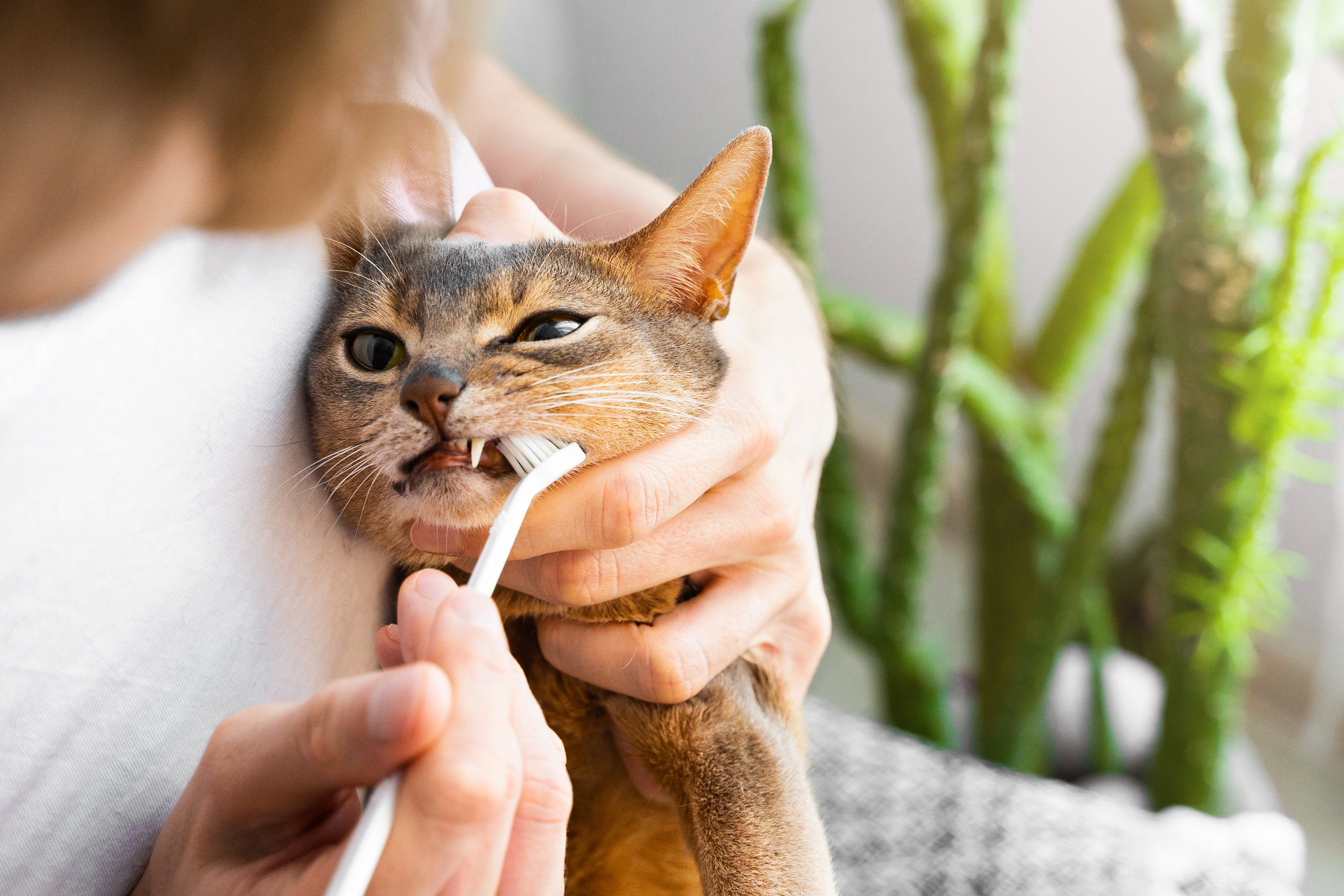When it comes to their teeth, so many cats are suffering in silence - and they really don't have to...
Did you know that 80% of cats show signs of dental disease before they’re three? Left untreated, dental issues can lead to tooth loss, pain, and serious infections that can impact vital organs like the heart and kidneys.
However, cats happen to be experts at hiding pain. A lot of owners are completely unaware when their feline pal is struggling, therefore, dental issues often go unnoticed until they become severe.
Causes of dental disease in cats
Dental disease usually starts with plaque buildup, which hardens into tartar. This leads to gingivitis (gum inflammation) and periodontitis (severe gum infection). However, poor oral hygiene, age and wet food diets also contribute to poor dental health.
It’s also important to be aware that certain cat breeds are more prone to dental issues. Persians, Maine Coons and Siamese cats are also more likely to suffer from issues with their teeth.
Signs of dental disease
Spotting problems early can save them from pain and make treatment much easier. Keep an eye out for these warning signs:
-
Discoloured teeth, tartar buildup, or red, inflamed gums
-
A sudden loss of appetite or eating less than usual
-
Bad breath that makes cuddles less enjoyable
-
Drooling, pawing at their face, or even signs of blood around their mouth
If you notice any of these symptoms, it’s time to visit the vet.
Treating dental disease
There are many ways your vet might treat dental health issues in your cat from a professional cleaning to antibiotics to tooth extractions.
The cost of treatment like this varies depending on your circumstances, but your vet should be able to run through all those costs with you. On average, cat dental care costs between £150 to £500 in the UK.
Preventing dental disease
The good news is you can take simple steps to keep your pet’s teeth healthy. Here are some easy tips to help you stay ahead of dental problems:

1. Brushing your cat’s teeth
Brushing their teeth a few times a week with a cat-specific toothbrush and toothpaste is the gold standard for dental care. Start slow, let them get comfortable.
Alternatively, you can try dental gels or wipes.
2. Regular vet check-ups
Routine vet visits help catch dental problems early, even if your cat shows no symptoms.
3. Diet adjustments
Dry kibble helps clean teeth better than wet food, which sticks to the surface and encourages plaque.
4. Dental treats & toys
Dental treats can help reduce plaque, especially those approved by the Veterinary Oral Health Council (VOHC). Dental toys with textured surfaces can also help keep teeth clean.
Does pet insurance cover dental care?
Most cat insurance policies provide cover for dental illnesses and injuries, but routine cleanings are usually excluded. Many policies also require your cat to have an annual dental check-up as a condition for cover. Always review the policy details carefully to understand what’s covered.
For peace of mind, contact British Pet Insurance’s friendly customer service team on 0333 110 0140 for a tailored quote. Use code YC10 to get an additional 10% off your cat policy, too!







